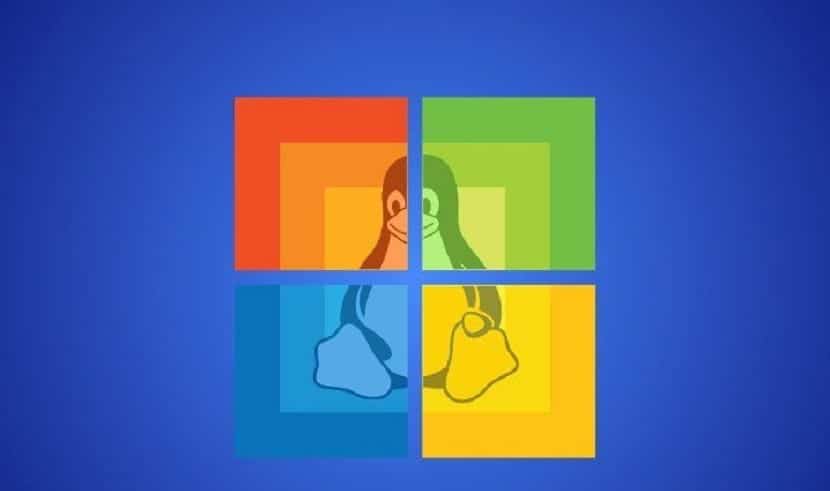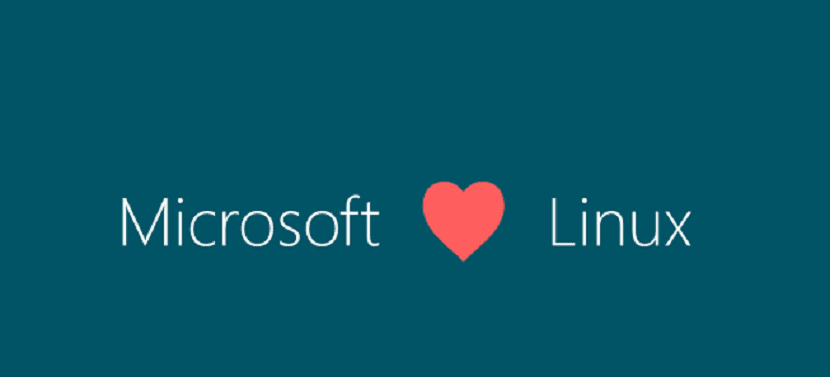
Uno of the events marked in recent years, especially in this year 2018 what has happened, is the question that Microsoft is getting closer to open source.
Well, during the last semester there were many steps in this direction, such as the acquisition of GitHub, the patents you decided to release and even creating a paid version of Linux.
Most prominent Microsoft open source moves
Firstly, It is important to say that Microsoft has been embracing Linux and open source for years.
Well in one of the most recent news that occurred last month was that Microsoft decided to abandon the development of its Edge browser, since in the first place it did not serve more than to look for the installers of other browsers (being realistic) because its market was really low.
And with which the developers will now take Chromium as the basis for their new web browser which will continue to retain the name "Edge".
On the other hand, after several tests, Microsoft launched its first Linux-based service, Azure, a system for the Internet of Things (IoT).
Now another important point is that Microsoft allows its users to run many Linux distributions on Windows using Hyper-V and the Windows Subsystem for Linux (WSL).
Besides that we cannot forget the introduction of the "Mu Project", who you are developing a framework for creating UEFI environments which initialize the hardware and provide a set of services to load the operating system.
Project Mu-based firmware is already being used in Microsoft products like Surface and Hyper-V.
The project builds on the work of the TianoCore EDK2 open UEFI stack, but it is not a fork.
Rather, it is placed as a complement ("MU" module), compiled on the basis of new stable versions of TianoCore and returning specific TianoCore fixes and changes to the main project.
Could Microsoft bet on Linux?

Now such and as commented on Zdnet, on why Microsoft could bet on a Linux-based system for desktop computers.
Given that as discussed, about the disastrous Windows 10 update that was released a few months ago.
Well, this version had endless problems that put Windows 10 developers in trouble and that especially some of the bugs are still present.
Of the errors in which folders and entire networks disappeared, where the worst case is that there is no forecast that the problems will be solved in the short term.
Undoubtedly, this can be a daunting task in addition to the fact that Microsoft's model has changed in recent years, as this is remarkable given the movements that have been made.
Why else would it be suffering the same as the Apple staff with the sale of its new "Iphone" and its computers more restrictive than the US customs receiving Muslims.
Since being clear the people of Microsoft for some years tried to do the same and the shot came out of the cultured and now they have reconsidered and decided to take another path.
And now the bet would be on a system based on Linux, although the problem lies in the migration of all its arsenal of them.
Microsoft has everything going for it
But it is As mentioned in the zdnet post, for this you have Wine and Crossover who are there to do the dirty work.
Although since Another point of view can only support Wine and create their own fork of it and establish a collection model like “Crossover”.
Or create a Zorin OS-style layout with the license payment model (or use of advanced functions).
Another point in favor of Microsft for this and that is also for Linux users is Proton's project (based on Wine) what Valve is doingSince from this point on, videogames can no longer be a point of concern for them.
Microsoft undoubtedly has many areas of opportunity, but the main problem lies in eliminating resistance both from Microsoft's top brass as well as from both Windows and Linux users.